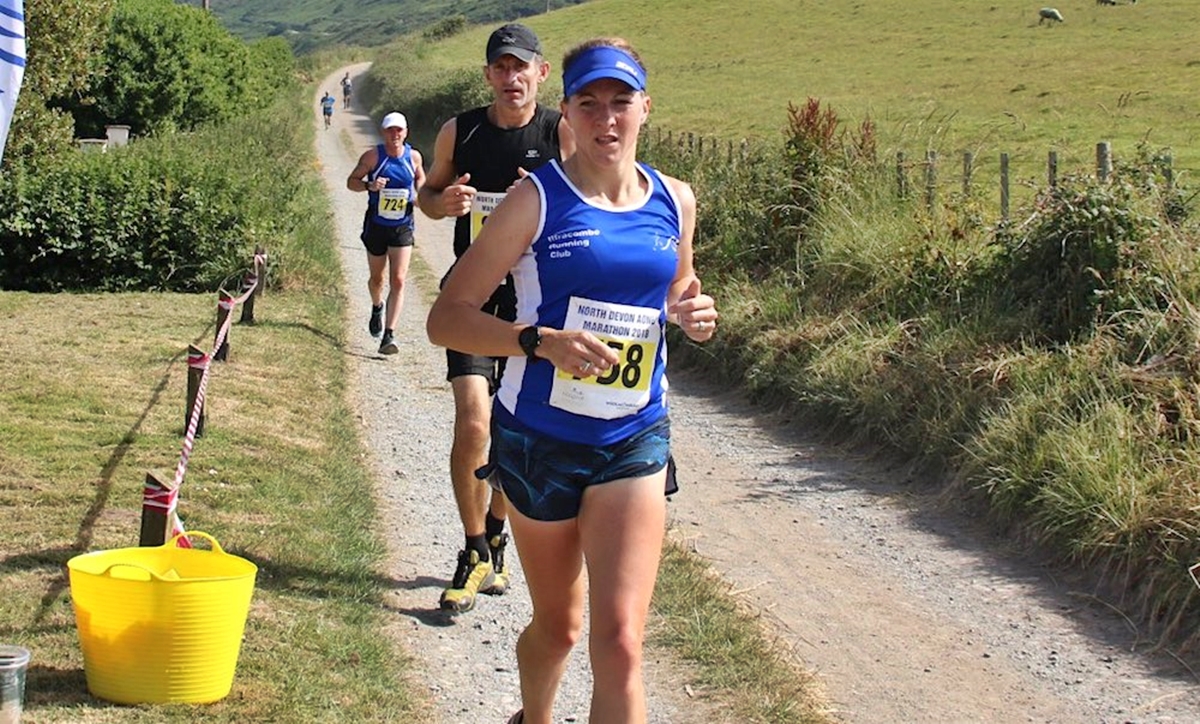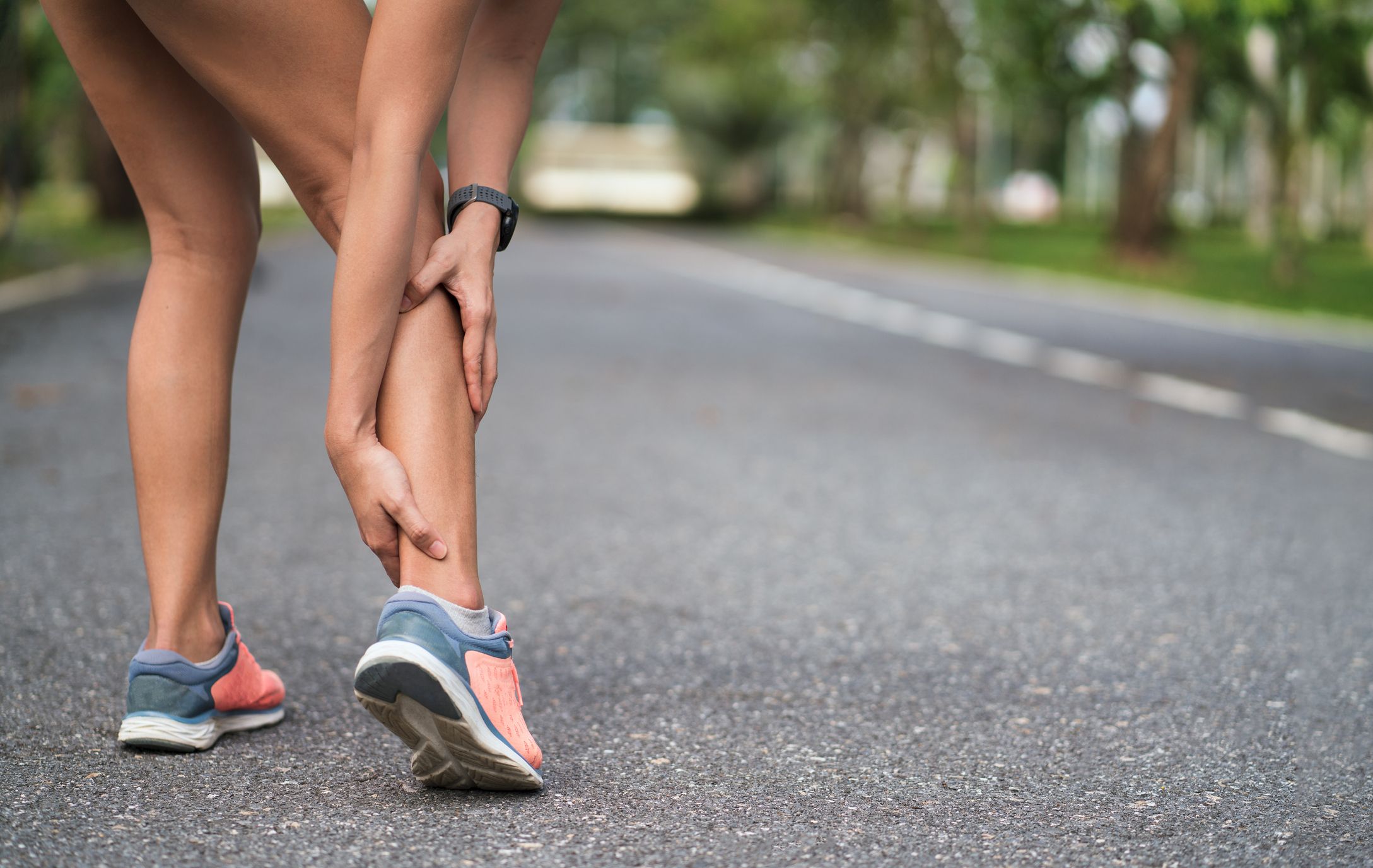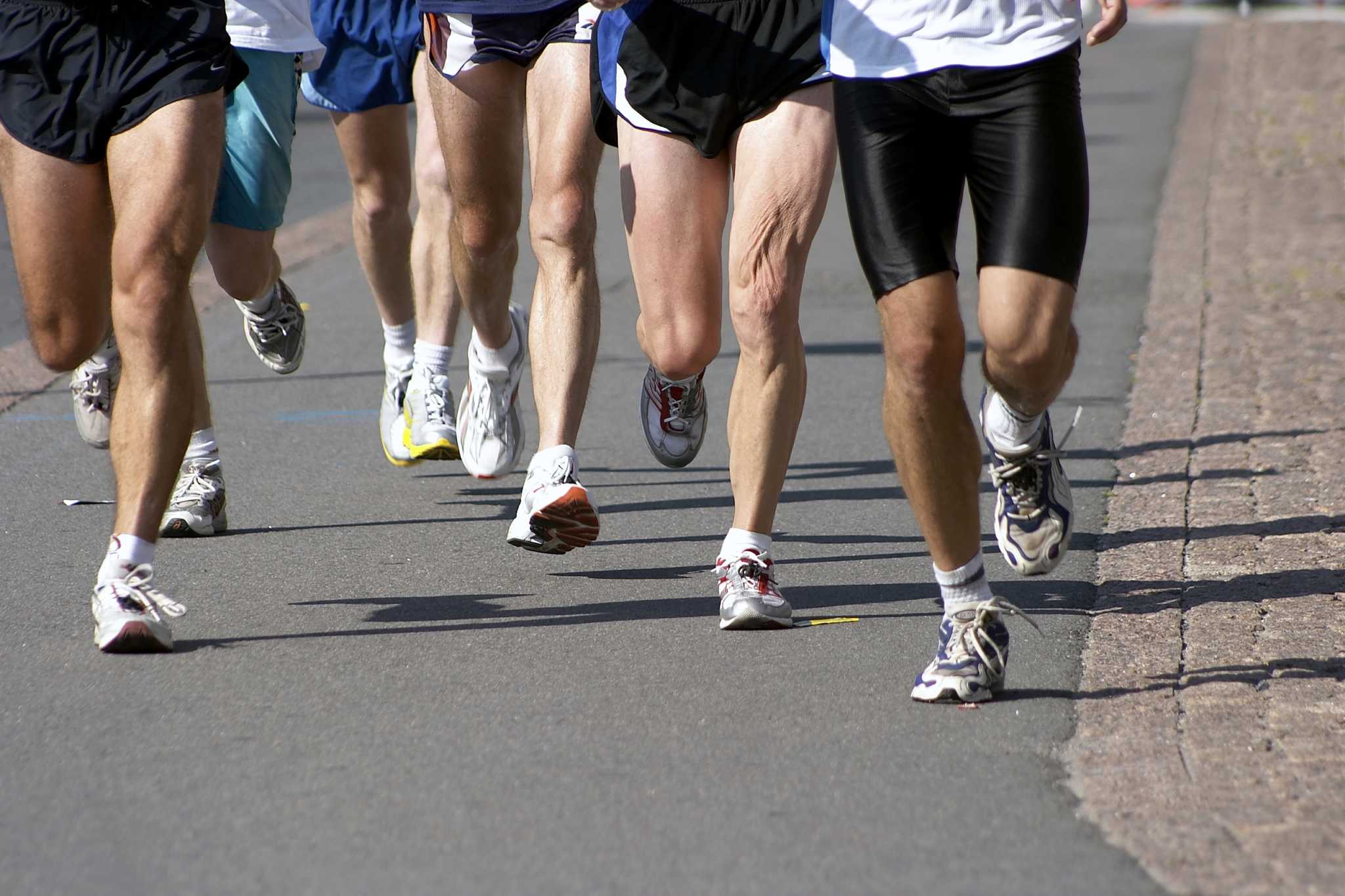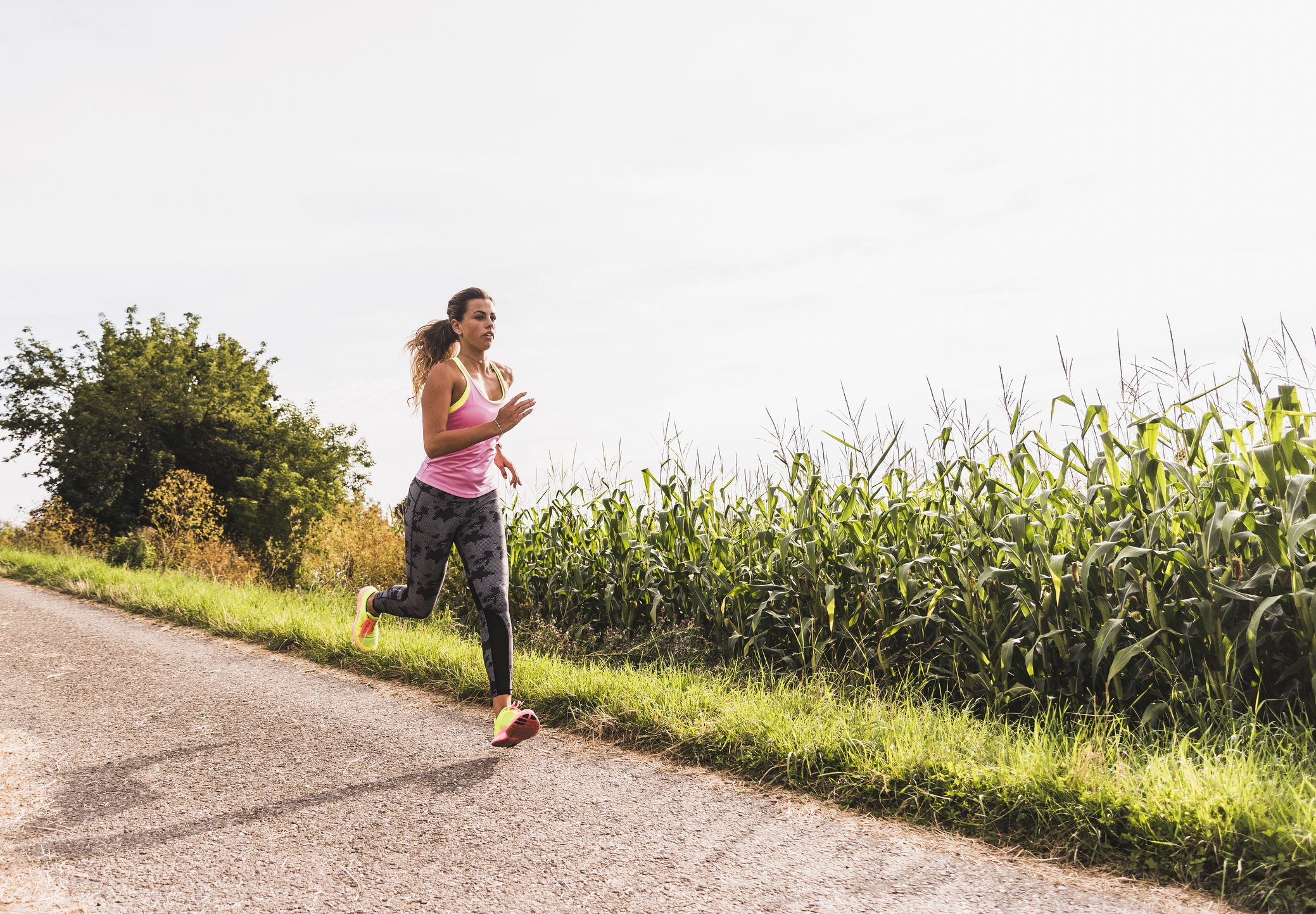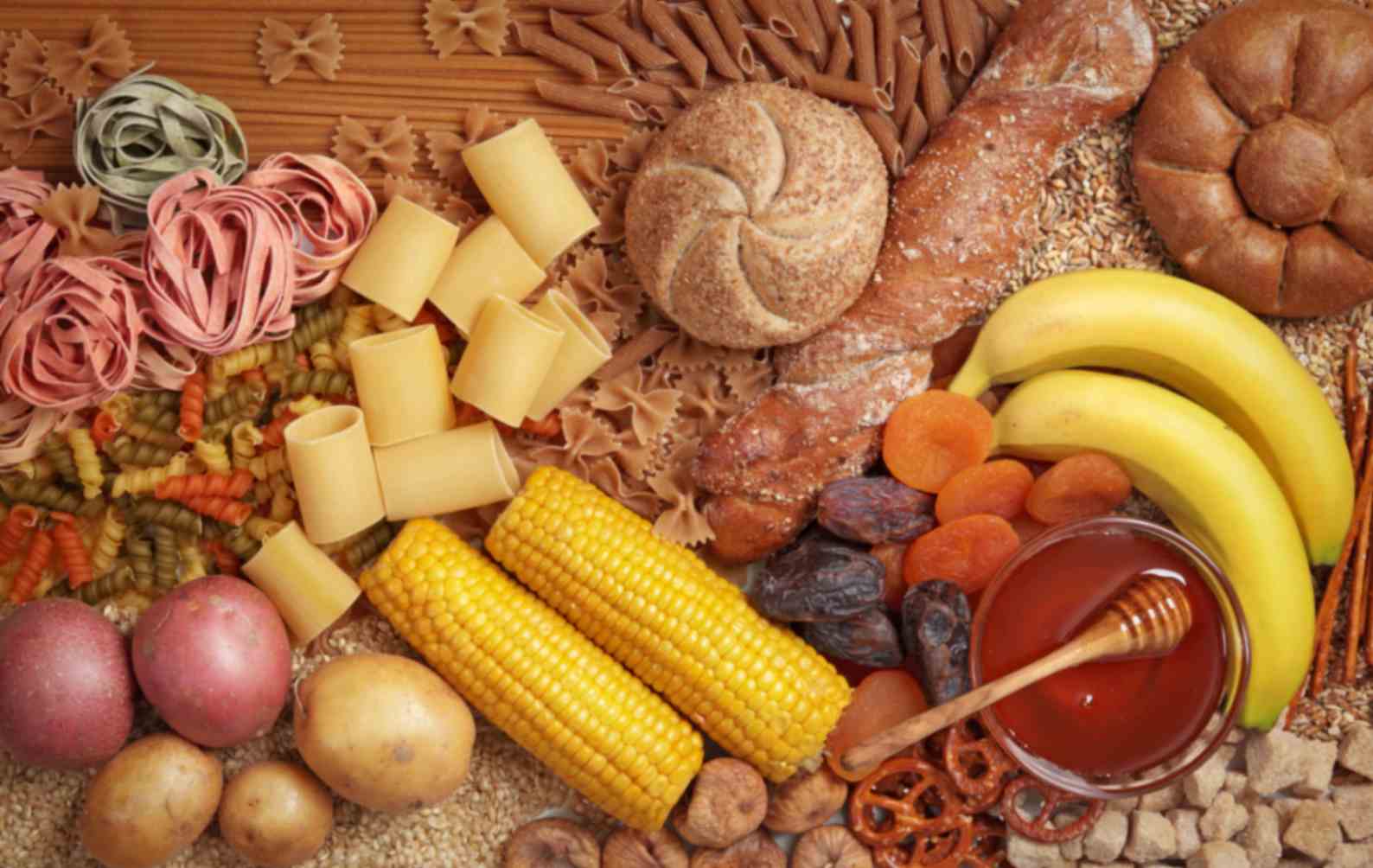

Featured
How To Carb Load Before A Half Marathon
Modified: August 21, 2023
Looking to improve your performance in a half marathon? Discover the best methods for carb loading before your race in this featured guide.
Introduction
Preparing for a half marathon requires careful planning and attention to detail, especially when it comes to nutrition. In order to perform at your best, it’s important to fuel your body with the right nutrients. One key component of marathon nutrition is carb loading. Carb loading involves increasing your carbohydrate intake in the days leading up to the race to maximize glycogen stores in your muscles.
Carbohydrates are the body’s primary source of fuel during endurance activities like running. By increasing your carbohydrate intake leading up to a half marathon, you can ensure that your muscles have an ample supply of glycogen to utilize as energy during the race. This can help delay the onset of fatigue, improve endurance, and enhance your overall performance.
In this article, we will explore the importance of carb loading for a half marathon, how many carbs to consume, when to start carb loading, choosing the right carbohydrates, balancing carbs with protein and fat, and provide a sample pre-race carb-loading meal plan. We will also share some tips to help you effectively carb load and maximize your performance on race day.
Remember, carb loading is not a one-size-fits-all approach, and what works for one person may not work for another. It’s important to experiment with your carb loading strategy during training to find what works best for your body and individual needs. So, let’s dive in and discover how carb loading can optimize your half marathon performance!
Why Carb Loading is Important for Half Marathon
Carb loading is essential for half marathon runners because of the unique energy demands that endurance activities place on the body. During prolonged exercise, such as a half marathon, your body primarily relies on glycogen stores in the muscles as a source of energy. By increasing your carbohydrate intake leading up to the race, you can maximize these glycogen stores, ensuring that you have sufficient fuel to sustain your performance.
When you consume carbohydrates, they are broken down into glucose, which is then stored in the muscles and liver as glycogen. During exercise, your body converts glycogen back into glucose to provide energy to the muscles. By increasing your carbohydrate intake before a half marathon, you increase the amount of glycogen available for use, allowing you to delay fatigue and maintain a steady energy supply throughout the race.
Carb loading also helps prevent hitting the dreaded “wall” during a half marathon. The “wall” refers to a state of depletion where your glycogen stores are exhausted, and you experience a sudden drop in energy levels. By adequately carb loading, you can minimize the chances of hitting the wall, helping you maintain a consistent and strong pace during the race.
Additionally, carb loading has been shown to improve endurance performance. Studies have found that athletes who carb load before endurance events like a half marathon can maintain a faster pace and have a better overall race performance compared to those who do not properly fuel their bodies with carbohydrates.
Not only does carb loading provide the energy needed to sustain your performance during a half marathon, but it also helps with muscle recovery post-race. After intense exercise, your glycogen stores become depleted, and your muscles undergo damage and inflammation. By carb loading after the race, you replenish glycogen stores and kickstart the recovery process, helping your muscles repair and rebuild.
Overall, carb loading is important for half marathon runners because it ensures that you have sufficient energy to complete the race, helps prevent hitting the wall, improves endurance performance, and aids in post-race recovery. By properly fueling your body with carbohydrates, you set yourself up for success and optimize your performance on race day.
How Many Carbs to Consume
Determining the optimal amount of carbs to consume when carb loading for a half marathon can vary depending on individual factors such as body weight, training volume, and metabolism. However, a general guideline is to aim for a carbohydrate intake of around 8-10 grams per kilogram of body weight per day during the carb-loading phase.
To calculate your carbohydrate needs, simply multiply your body weight in kilograms by 8-10 grams. For example, if you weigh 70 kilograms, your carbohydrate goal for each day of carb loading would be between 560-700 grams of carbohydrates.
It’s important to note that this recommendation is a starting point, and it may be necessary to adjust your carbohydrate intake based on your individual needs and training load. Some runners may find they perform better with slightly higher or lower carbohydrate intake. Experimenting with your carbohydrate intake during training can help you determine what works best for you.
When considering carbohydrate intake, it’s also crucial to focus on consuming complex carbohydrates rather than simple sugars. Complex carbohydrates provide a sustained release of energy as they take longer to break down, keeping your blood sugar levels stable throughout the race. Examples of complex carbohydrates include whole grains, fruits, vegetables, and legumes.
It’s equally important to divide your carbohydrate intake evenly throughout the day. This ensures a steady supply of energy for your muscles and prevents any digestive discomfort that may arise from consuming too many carbs in one sitting. Aim to have a carb-rich meal or snack every 3-4 hours leading up to the race.
Remember, the goal of carb loading is to maximize glycogen stores in your muscles, so it’s essential to prioritize carbohydrate intake while still maintaining a balanced diet. Be sure to include adequate amounts of protein, healthy fats, and micronutrients to support overall health and recovery.
Overall, aim for a carbohydrate intake of 8-10 grams per kilogram of body weight per day during the carb-loading phase, focusing on complex carbohydrates and evenly distributing them throughout the day. Experimenting with your carbohydrate intake during training can help you find the optimal amount that supports your individual needs and enhances your performance on race day.
When to Start Carb Loading
The timing of when to start carb loading for a half marathon is crucial to ensure your muscles are properly fueled for race day. Typically, it is recommended to begin carb loading around 2-3 days before the race. This allows enough time for your body to store adequate glycogen in the muscles without feeling overly bloated or uncomfortable.
Starting the carb-loading process too early may lead to excessive weight gain or feeling sluggish during training sessions. On the other hand, starting too late may not provide enough time for your muscles to fully replenish glycogen stores.
As a general rule of thumb, begin increasing your carbohydrate intake to around 60-70% of your total daily caloric intake during the last 2-3 days leading up to the race. This ensures you are consuming enough carbohydrates to maximize your glycogen stores while still maintaining a balanced diet.
During this carb-loading period, focus on incorporating a variety of carbohydrate-rich foods into your meals and snacks. Whole grains, fruits, vegetables, legumes, and starchy vegetables are great options to include. Avoid relying solely on processed or sugary foods, as they may cause energy crashes or digestive discomfort.
In addition to increasing your carbohydrate intake, it’s important to continue hydrating properly during the carb-loading phase. Drinking enough water helps support glycogen storage in the muscles and ensures optimal performance on race day. Aim to drink at least 8-10 glasses of water per day.
If you have any concerns or specific dietary requirements, it’s always a good idea to consult with a registered dietitian or sports nutritionist. They can provide personalized guidance and help you create a carb-loading plan that aligns with your individual needs.
Remember that carb loading is just one piece of the nutrition puzzle for a successful half marathon. Prioritize the quality of your carbohydrate sources, eat a balanced diet, and continue to fuel your body with the nutrients it needs throughout your training and preparation for the race.
By starting carb loading at the right time and following a well-rounded nutrition plan, you can ensure optimal glycogen storage, improve your performance, and set yourself up for a successful half marathon.
Choosing the Right Carbohydrates
When it comes to carb loading for a half marathon, the quality of the carbohydrates you choose is just as important as the quantity. Opting for the right types of carbohydrates can provide sustained energy, better digestion, and improved overall performance. Here are some guidelines to help you choose the right carbohydrates for your carb-loading phase:
1. Focus on Complex Carbohydrates: Complex carbohydrates are digested slowly, providing a steady release of energy and preventing blood sugar spikes and crashes. Incorporate whole grains like brown rice, quinoa, whole wheat bread, and oatmeal into your meals. These are rich in fiber and other important nutrients.
2. Include Fruits and Vegetables: Fruits and vegetables are packed with vitamins, minerals, and antioxidants that support overall health. They also add variety, flavor, and color to your meals. Choose a wide range of colorful produce like berries, leafy greens, sweet potatoes, and bell peppers to boost your carbohydrate intake while getting essential nutrients.
3. Don’t Forget Legumes: Legumes such as beans, lentils, and chickpeas are not only high in carbohydrates but also provide a good source of plant-based protein and fiber. Adding legumes to your meals and snacks can help keep you feeling full and satisfied during the carb-loading phase.
4. Be Mindful of Simple Sugars: While complex carbohydrates should make up the majority of your carb intake, some simple sugars can still be included in moderation. These can provide quick bursts of energy. However, be cautious of relying too heavily on sugary foods as they can cause energy crashes and digestive issues. Opt for natural sources of simple sugars such as fruits or small amounts of honey or maple syrup.
5. Consider Gluten-Free Options: For individuals with gluten intolerances or sensitivities, there are plenty of gluten-free carbohydrate options available. Incorporate gluten-free grains like quinoa, buckwheat, and rice, as well as gluten-free flour alternatives like almond or coconut flour. Be sure to read food labels to ensure products are truly gluten-free.
Remember, the goal is not just to consume carbohydrates but to fuel your body with nutritious choices that support overall health and performance. As always, listen to your body and choose carbohydrates that work best for you. Experiment during training to figure out which carbohydrate sources provide the best energy and digestibility without causing discomfort.
By choosing the right carbohydrates, you can ensure a steady release of energy, maintain stable blood sugar levels, and optimize your performance during the half marathon.
Balancing Carbs with Protein and Fat
While carb loading is a key component of preparing for a half marathon, it’s important to maintain a balanced approach by incorporating adequate amounts of protein and fat into your diet. Protein and fat contribute to overall nutrition, aid in muscle repair and recovery, and help regulate energy levels. Here’s how to strike the right balance:
1. Protein: Including protein in your meals and snacks during the carb-loading phase helps support muscle recovery and growth. Aim for a protein intake of around 1.2-1.6 grams per kilogram of body weight per day. Good sources of protein include lean meats, poultry, fish, eggs, dairy products, legumes, and plant-based protein sources like tofu and tempeh.
2. Healthy Fats: Don’t neglect healthy fats in your diet. They provide essential fatty acids, help with nutrient absorption, and provide a source of long-lasting energy. Include healthy fats from sources such as avocados, nuts, seeds, olive oil, and fatty fish like salmon. However, be mindful of portion sizes as fats are more calorie-dense compared to carbohydrates and protein.
3. Timing: When it comes to balancing carbs, protein, and fat, consider the timing of your meals and snacks. To maximize glycogen stores, focus on carb-centric meals before and after training sessions. Including proteins and fats during these times can support muscle recovery. As you get closer to race day, gradually decrease fat intake to optimize digestion and energy levels.
4. Meal Ideas: Create balanced meals by including all three macronutrients. For example, a pre-race meal could consist of whole wheat toast (carbs), scrambled eggs (protein), and sliced avocado (healthy fat). Post-race, opt for a balanced bowl of quinoa (carbs), grilled chicken or tofu (protein), and roasted vegetables drizzled with olive oil (healthy fat).
5. Hydration: Don’t forget about hydration when balancing your macronutrients. Water helps maintain optimal performance and aids digestion. Drink plenty of fluids throughout the day and consider incorporating electrolyte-rich beverages or snacks during and after your training sessions.
Balancing your carbohydrate intake with protein and fat ensures that your body has a steady supply of nutrients to support muscle repair, energy production, and overall recovery. Experiment with different meal combinations and listen to your body to find the balance that works best for you.
Remember, it’s always a good idea to consult with a registered dietitian or sports nutritionist for personalized guidance based on your specific needs and goals.
Pre-race Carb-Loading Meal Plan
Creating a pre-race carb-loading meal plan can help ensure that you consume sufficient carbohydrates to fuel your body for the half marathon. Here’s a sample meal plan to give you an idea of how to structure your meals during the carb-loading phase:
Day 1:
- Breakfast: Overnight oats made with rolled oats, almond milk, chia seeds, and topped with fresh berries and a sprinkle of nuts.
- Snack: Whole fruit, such as a banana or apple, paired with a handful of almonds.
- Lunch: Quinoa salad with mixed vegetables, chickpeas, and a dressing made with olive oil and lemon juice.
- Snack: Greek yogurt with a drizzle of honey and a sprinkle of granola.
- Dinner: Grilled chicken or tofu with a side of brown rice, steamed broccoli, and roasted sweet potatoes.
- Snack: Whole grain toast with nut butter and sliced banana.
Day 2:
- Breakfast: Vegetable omelet made with eggs, spinach, tomatoes, and onions, served with whole wheat toast.
- Snack: Carrot sticks with hummus.
- Lunch: Quinoa and black bean salad with diced bell peppers, cherry tomatoes, and a lime-cilantro dressing.
- Snack: Greek yogurt with mixed berries and a sprinkle of granola.
- Dinner: Whole wheat pasta with marinara sauce, lean ground turkey or plant-based alternative, and a side salad.
- Snack: Rice cakes topped with avocado slices and a dash of sea salt.
Day 3:
- Breakfast: Whole grain toast topped with avocado, sliced hard-boiled eggs, and a sprinkle of black pepper.
- Snack: Homemade energy balls made with oats, nut butter, honey, and dried fruit.
- Lunch: Brown rice bowl with grilled salmon or tempeh, steamed asparagus, and a drizzle of sesame oil.
- Snack: Fresh fruit smoothie made with almond milk, spinach, berries, and a scoop of protein powder.
- Dinner: Baked sweet potato topped with black beans, diced tomatoes, corn, and a dollop of Greek yogurt.
- Snack: Whole grain crackers with cheese or nut butter.
Make sure to adapt this meal plan to suit your individual needs, preferences, and dietary restrictions. Adjust portion sizes based on your activity level, body weight, and training intensity. Experiment with different foods to find what works best for you in terms of energy levels and digestion.
Remember to stay hydrated by drinking plenty of water and electrolyte-rich beverages throughout the day. Listen to your body and make adjustments as needed, as everyone’s nutritional requirements may vary.
By following a well-rounded pre-race carb-loading meal plan, you can optimize your glycogen stores, support energy levels, and ensure you’re in top form for your half marathon.
Sample Carb-Rich Foods
When it comes to carb loading for a half marathon, incorporating a variety of carb-rich foods into your meals and snacks is essential to maximize glycogen stores and fuel your body for optimal performance. Here are some examples of carb-rich foods to include in your pre-race nutrition plan:
Whole Grains:
- Quinoa
- Brown rice
- Whole wheat bread
- Oatmeal
- Barley
Fruits and Vegetables:
- Bananas
- Oranges
- Apples
- Berries (strawberries, blueberries, raspberries)
- Sweet potatoes
- Leafy greens (spinach, kale, arugula)
- Broccoli
- Carrots
Legumes:
- Black beans
- Chickpeas
- Lentils
- Kidney beans
Dairy and Alternatives:
- Low-fat milk or soy milk
- Greek yogurt
- Cottage cheese
- Almond milk
- Soy yogurt
Starchy Vegetables:
- Corn
- Peas
- Butternut squash
- Pumpkin
Other Carb-Rich Foods:
- Honey
- Maple syrup
- Dates
- Raisins
- Whole grain pasta
- Whole grain crackers
- Whole grain tortillas
Incorporate these carb-rich foods into your meals and snacks leading up to the race to ensure you’re providing your muscles with the necessary fuel they need. Remember to focus on complex carbohydrates to provide sustained energy and include a combination of different food groups to meet your nutritional needs.
Keep in mind that portion sizes and timing of carb intake play a role in optimizing carb loading. Experiment with different foods and portion sizes during your training to find what works best for your body and performance. Consulting a registered dietitian or sports nutritionist can provide personalized guidance based on your specific needs and goals.
By selecting a wide range of carb-rich foods, you can create a carb-loading plan that supports your energy levels, promotes muscle glycogen storage, and helps you excel during your half marathon.
Tips for Effective Carb Loading
Carb loading can greatly benefit your half marathon performance, but it’s important to approach it with a strategic plan. Here are some tips to ensure effective carb loading:
1. Gradually Increase Carb Intake: Start increasing your carb intake gradually over the course of 2-3 days before the race. Rapidly increasing your carb intake all at once can lead to digestive discomfort. Slowly incorporating more carbs allows your body to adjust and better utilize the fuel.
2. Focus on Complex Carbohydrates: Prioritize complex carbohydrates such as whole grains, fruits, vegetables, and legumes. These provide a steady release of energy and are rich in essential nutrients. Avoid relying solely on simple sugars and processed foods, as they can cause energy crashes and digestive issues.
3. Experiment During Training: Use your long training runs or races as an opportunity to experiment with different carb-loading strategies. Pay attention to how your body responds to different food choices and timing. This will help you fine-tune your approach for race day.
4. Hydrate Properly: Adequate hydration is crucial for carb loading to be effective. Make sure to drink plenty of water throughout the day leading up to the race. Consider adding electrolyte-rich sports drinks or coconut water to replenish sodium and potassium levels.
5. Don’t Neglect Protein and Fat: While carbs are the focus during carb loading, don’t forget to include adequate amounts of protein and healthy fats in your meals. Protein supports muscle repair and recovery, while healthy fats provide essential nutrients and help regulate energy levels.
6. Listen to Your Body: Everyone’s nutritional needs and preferences are different. Pay attention to how your body responds to different carb-rich foods. If something doesn’t sit well or affects your digestion negatively, make adjustments and find alternatives that work for you.
7. Be Mindful of Portion Sizes: While it’s important to increase your carb intake, be mindful of portion sizes to avoid overeating and feeling overly bloated. Adjust portion sizes based on your activity level, body weight, and training intensity.
8. Stick to Familiar Foods: Race day is not the time to experiment with new foods or supplements. Stick to the foods and products that you are accustomed to during your training. This ensures your body is familiar with the fuel and reduces the risk of digestive issues or discomfort on race day.
9. Practice Balanced Nutrition: While carb loading is the primary focus, maintain a balanced approach to nutrition throughout the rest of your training. Incorporate a variety of macronutrients and micronutrients to support overall health and recovery.
10. Stay Positive and Relaxed: Lastly, remember that mental and emotional preparation are just as important as physical preparation. Maintain a positive mindset, stay relaxed, and trust in your training and fueling plan. This will help you perform at your best on race day.
By following these tips, you can ensure that your carb loading is effective, supports your energy levels, and optimizes your performance during the half marathon.
Conclusion
Carb loading is a vital strategy for half marathon runners to optimize their performance and ensure they have sufficient energy to complete the race. By increasing carbohydrate intake in the days leading up to the event, you can maximize glycogen stores in your muscles, delay fatigue, improve endurance, and maintain a steady pace throughout the race.
Throughout this article, we have discussed the importance of carb loading for a half marathon and provided guidance on how to effectively implement it into your training regime. From determining the right amount of carbs to consume and when to start carb loading, to choosing the right carbohydrates and balancing them with protein and fat, each aspect plays a crucial role in supporting your performance on race day.
We have also explored a sample pre-race carb-loading meal plan and highlighted a variety of carb-rich foods to include in your diet. By incorporating complex carbohydrates, fruits, vegetables, legumes, and whole grains, you can fuel your body with the nutrients it needs to excel in the half marathon.
Additionally, we have provided tips for effective carb loading, emphasizing the importance of gradual increase, proper hydration, experimentation during training, and listening to your body’s individual needs.
Remember, carb loading is not a guarantee for success on its own. It should be accompanied by a well-rounded training program, adequate rest, and a positive mindset. Everyone’s nutritional needs and preferences may vary, so it’s essential to experiment and find what works best for you.
Now armed with the knowledge and tools to implement effective carb loading, you can confidently tackle your upcoming half marathon with the energy and endurance necessary to reach the finish line strong. Trust in your training, stay focused, and enjoy the journey as you achieve your goals in the world of distance running.


